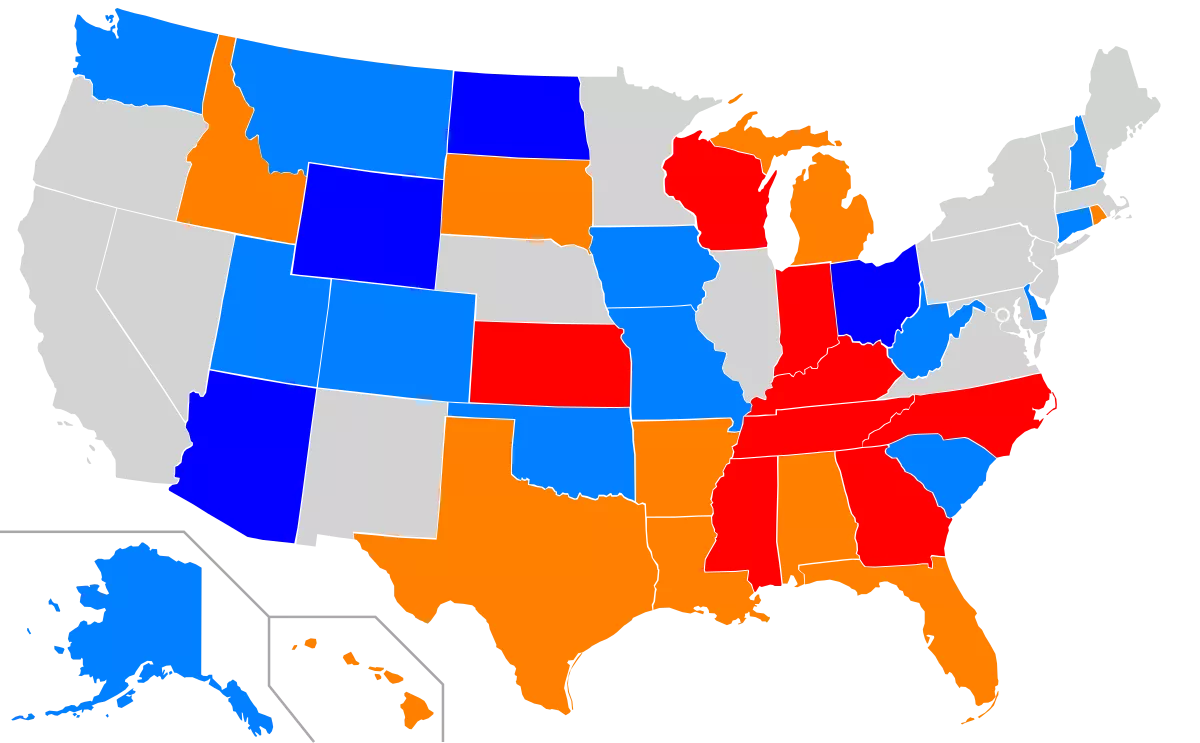Voter Identification Laws in the United States
Overview of Voter ID Laws
Currently, 35 states have some form of voter ID requirement, categorized by the type of identification needed:
- Photo IDs: Required by 21 states.
- Non-photo IDs: Accepted in 15 states.
- Strict vs. Non-strict Laws: Some states require additional steps if voters lack ID.
Recent Trends
In recent years, many states have adopted stricter voter ID laws, with ongoing evaluations as the 2024 election approaches. Despite claims of preventing fraud, studies show mixed effects on voter turnout.
Impact on Different Groups
Voter ID laws have a disproportionate impact on certain demographics:
- Approximately 13% of Black citizens of voting age lack acceptable ID, compared to 5% of white citizens.
- Transgender voters face challenges due to mismatched identification documents.
Legal Challenges
Voter ID laws have been challenged in courts, resulting in some being upheld while others are modified or struck down due to concerns over voter suppression.
For more detailed information, you can check out sources like Brennan Center for Justice and National Conference of State Legislatures.
Voter identification laws have become a significant and contentious topic within the realm of U.S. electoral politics. These laws, which require individuals to provide specific forms of identification before being allowed to vote, vary greatly from state to state.
Overview of Voter ID Laws
Voter ID laws are enacted with the intention of ensuring the integrity of the election process. Proponents argue that requiring identification helps to prevent voter fraud, maintain public confidence in the electoral process, and protect the rights of legitimate voters. However, opponents contend that these laws can disenfranchise voters, particularly among minority groups, the elderly, and low-income individuals.
Types of Voter ID Laws
Voter ID laws can generally be categorized into three types:
- Strict photo ID laws: Require voters to present a specified form of photo identification to vote.
- Non-strict photo ID laws: Allow for some alternatives if a voter does not have an ID, such as signing an affidavit or providing a signature match.
- Non-photo ID laws: Accept forms of identification that do not have a photo, such as utility bills or bank statements.
State-by-State Analysis
The landscape of voter ID laws varies widely across the United States. Some states, like Indiana and Georgia, have enacted strict laws requiring photo IDs. Others, like California and Nevada, have more lenient requirements or do not require an ID at all.
As of 2023, the National Conference of State Legislatures (NCSL) provides a comprehensive overview of these laws, detailing which states have enacted specific voter ID requirements.
Impact on Voter Participation
Research indicates that voter ID laws can adversely affect voter turnout. A study by the Brennan Center for Justice found that states with strict ID laws generally experience lower voter participation rates compared to states without such laws. This trend raises important questions about access to the electoral process and the principles of democracy.
Legal Challenges and Political Debate
The implementation of voter ID laws has led to numerous legal challenges across the country. Courts have frequently examined whether these laws violate the Voting Rights Act or disproportionately impact specific groups of voters. The political debate surrounding these laws continues to be polarized, with advocates framing the issue as a matter of election integrity versus civil rights.
Conclusion
Voter identification laws represent a complex and divisive issue in contemporary American politics. As the nation moves toward the next election cycle, the ramifications of these laws will continue to be a focal point of debate. Understanding the nuances of voter ID laws is essential for fostering an informed electorate and ensuring the integrity and accessibility of the voting process.
Further Reading and Resources
- National Association of Secretaries of State - Can I Vote?
- Brennan Center for Justice - Voter ID Laws and Voter Turnout
- National Conference of State Legislatures - Voter ID Laws
-
National Conference of State Legislatures (NCSL)
NCSL Voter ID Laws - A comprehensive resource regarding various state voter ID laws, including latest updates and changes. -
Brennan Center for Justice
Brennan Center - Voter ID Laws - In-depth analysis of the impacts of voter ID laws on election turnout and civil rights. -
U.S. Department of Justice
DOJ Voting Information - Information on voting rights enforcement and legal guidelines related to voter ID laws. -
Vote.org
Vote.org Voter ID Requirements - Provides information on the different ID requirements in each state and how to vote. -
League of Women Voters
League Voter ID Information - Advocacy organization offering resources and information about voter ID laws and voting rights. -
American Civil Liberties Union (ACLU)
ACLU Voter ID Laws - Discusses the implications of voter ID laws on civil liberties and voter suppression. -
National Association of Secretaries of State (NASS)
NASS Can I Vote - Offers resources related to voting, including information about ID requirements by state. -
Common Cause
Common Cause Voter ID - Advocacy group focused on promoting fair voting practices, including perspectives on voter ID laws. -
State Election Offices
Find your state's election office - Direct links to the official websites of each state’s election office for the latest information on voting requirements.

